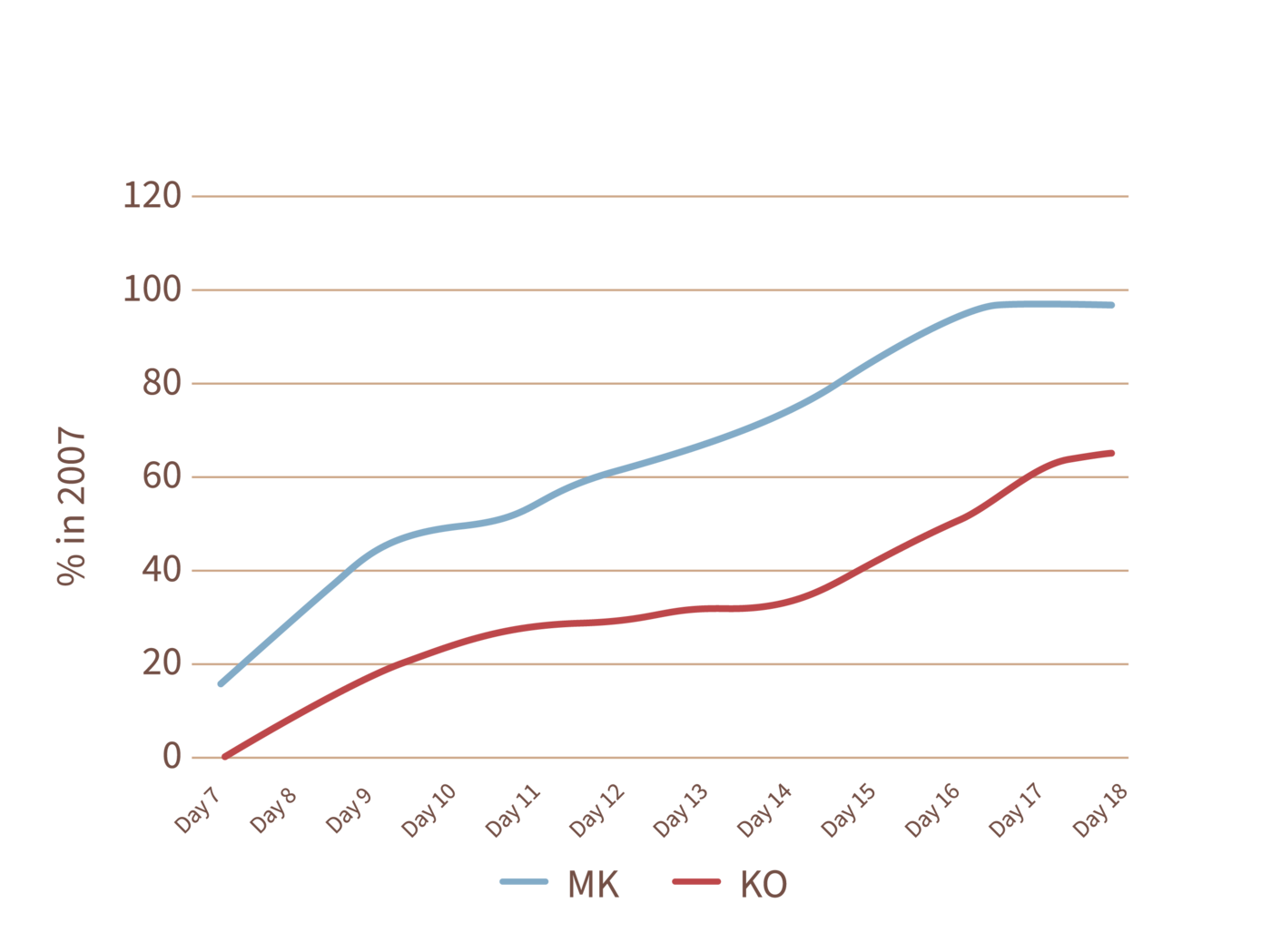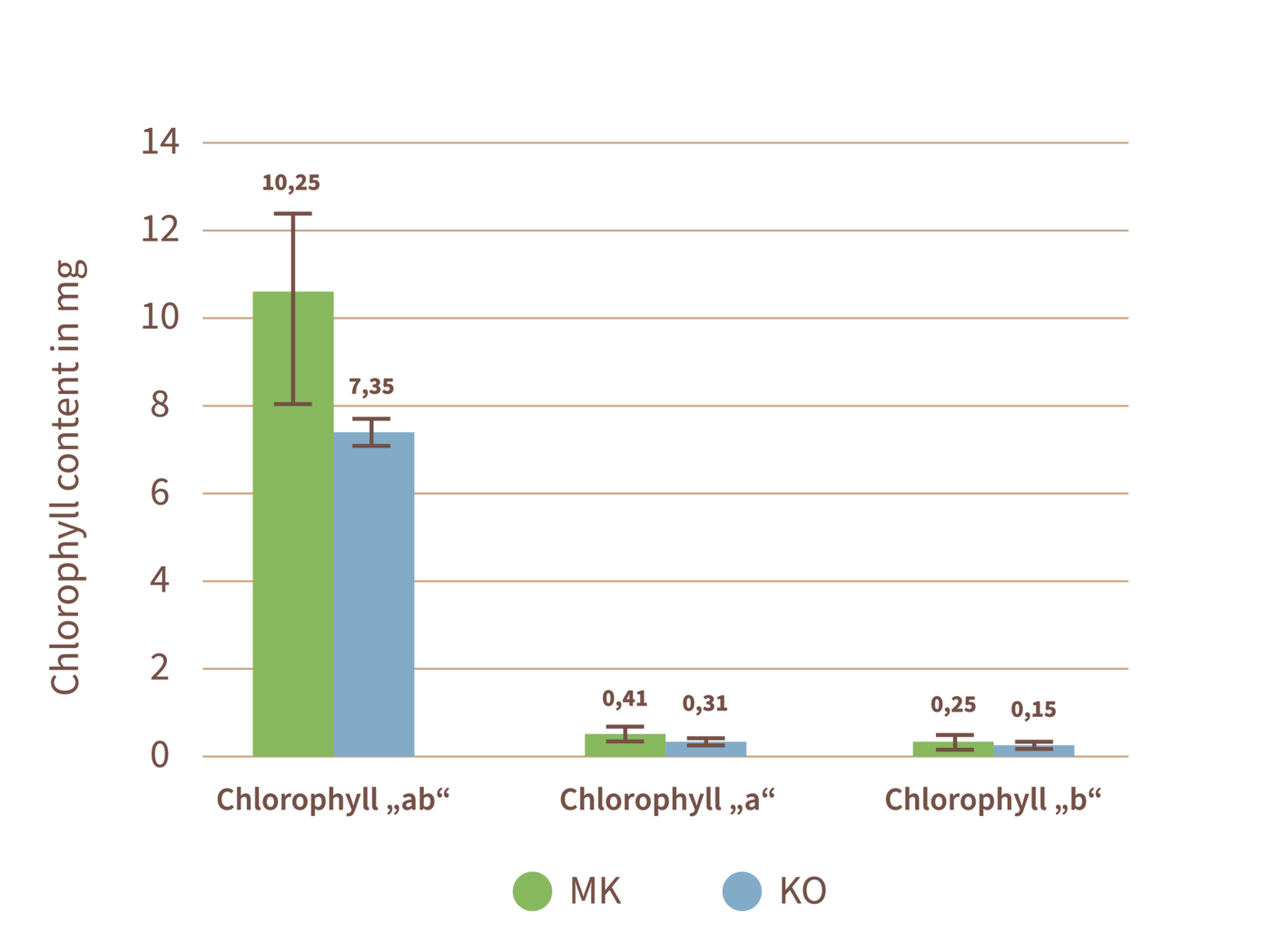Reducing blossom end rot in tomatoes
Bring in the harvest for the use of Multikraft.
In tomatoes, Multikraft technology significantly reduces disease pressure and damage to fruit caused by blossom end rot. It increases the overall yield by up to 38.5 per cent.
Anyone who does not understand the benefits of MK Soil cannot see what is right in front of their nose. A dissertation at the University of Natural Resources and Life Sciences in Vienna gave an impressive demonstration of the effects.
The trial
Two tomato varieties “Cassiopeia” and “Mercedes” were studied over a two-year test period. They were treated with a combination of rock dust, MK Soil and fermented extracts. In addition, Bokashi – in this case wheat bran fermented with MK Soil – was added to the growing medium.
The following parameters were analysed in detail: Growth, yield and susceptibility to disease, chlorophyll content in the tomato leaves and the nutrient content of the leaves and the growing medium. In addition, biophotons in the fruit and leaves and the allergen content of the fruit were studied.

Results
Over both years, the germination rate was higher and the plants began growing earlier (Figure 1). In addition, there was a higher content of chlorophyll a-b and chlorophyll a. The untreated plants had significantly more attacks of Alternaria, Botrytis, Venturia, fruit pox and gold fleck. In addition, there were far fewer fruit with blossom end rot (3% instead of 31%).
The combination of Multikraft ingredients led to a much higher overall yield of saleable fruit (Tables 4 and 5) and a much higher proportion of fruit in the “Extra” category during quality assurance.
Over both years, the germination rate was higher and the plants began growing earlier (Figure 1). In addition, there was a higher content of chlorophyll a-b and chlorophyll a. The untreated plants had significantly more attacks of Alternaria, Botrytis, Venturia, fruit pox and gold fleck. In addition, there were far fewer fruit with blossom end rot (3% instead of 31%).
The combination of Multikraft ingredients led to a much higher overall yield of saleable fruit (Tables 4 and 5) and a much higher proportion of fruit in the “Extra” category during quality assurance.
Germination rate 2006/2007 after sowing; comparison of 125 seeds with MK treatment (MK) and 125 seeds in the control group (KO)


2006 Comparison of test group and control group 31 days after sowing

Test group

Control group
Chlorophyll measurements
2006 41 days after germination
2006 41 days after germination

2007 164 days after germination
2007 164 days after germination

Overview of the fruit with diseases during the 2006 growing season

2007: Increase in fruit with blossom end rot in the control group

18/06

10/07
Overview of the average yields in 2006 in g/plant on the different harvest dates.
Overview of the average yields in 2006 in g/plant on the different harvest dates.

Overview of the average yields in 2007 in g/plant on the different harvest dates.
Overview of the average yields in 2007 in g/plant on the different harvest dates.

Do you have questions about the studies?
We will be happy to answer them!
